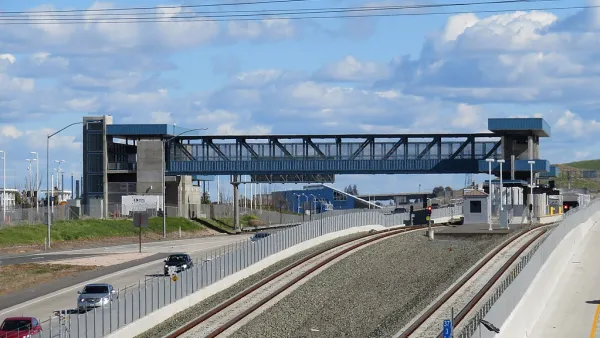The ecosystems of Oregon’s Coast Range are some of the most adept ecosystems for absorbing carbon in the entire country. The same trees that absorb that carbon can be turned into a major source of emissions in the hands of humans.

Carl Segerstrom reports on a surprising environmental dynamic at work in Oregon, revealed by a recent study authored by researchers at Oregon State University and the University of Idaho.
Less than a year after devastating fires ripped through some of the most beautiful areas in the state, a study published by the Proceedings of the National Academy of Sciences of the United States of America (PNAS) finds that logging and wood products are a larger source of carbon emissions in Oregon's forests than fires.
"Figuring out the role of forests and wood in carbon pollution could have major policy implications in Oregon, as Gov. Kate Brown has pledged to meet the emissions goals of the Paris Climate accords," according to Segerstrom.
Not only are fires a smaller source of carbon emissions, but "the wood products industry is the largest sector contributing to carbon pollution in the state," according to the study, as explained by Segerstrom.
"Wood product emissions are the result of fuel burned by logging equipment, the hauling of timber, milling, wood burned during forestry activities, and the ongoing decomposition of trees after they are cut," explains Segerstrom.
The researchers responsible for the study will next expand the concept to a larger swath of the Western United States.
FULL STORY: Timber is Oregon’s biggest carbon polluter

Analysis: Cybertruck Fatality Rate Far Exceeds That of Ford Pinto
The Tesla Cybertruck was recalled seven times last year.

National Parks Layoffs Will Cause Communities to Lose Billions
Thousands of essential park workers were laid off this week, just before the busy spring break season.

Retro-silient?: America’s First “Eco-burb,” The Woodlands Turns 50
A master-planned community north of Houston offers lessons on green infrastructure and resilient design, but falls short of its founder’s lofty affordability and walkability goals.

Test News Post 1
This is a summary

Analysis: Cybertruck Fatality Rate Far Exceeds That of Ford Pinto
The Tesla Cybertruck was recalled seven times last year.

Test News Headline 46
Test for the image on the front page.
Urban Design for Planners 1: Software Tools
This six-course series explores essential urban design concepts using open source software and equips planners with the tools they need to participate fully in the urban design process.
Planning for Universal Design
Learn the tools for implementing Universal Design in planning regulations.
EMC Planning Group, Inc.
Planetizen
Planetizen
Mpact (formerly Rail~Volution)
Great Falls Development Authority, Inc.
HUDs Office of Policy Development and Research
NYU Wagner Graduate School of Public Service




























